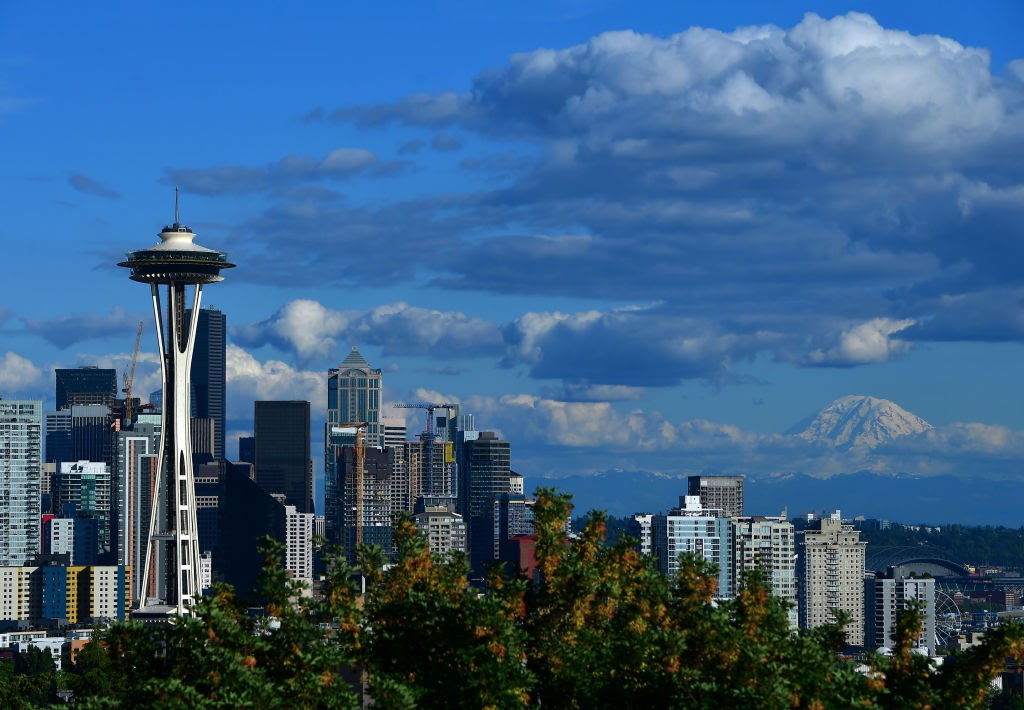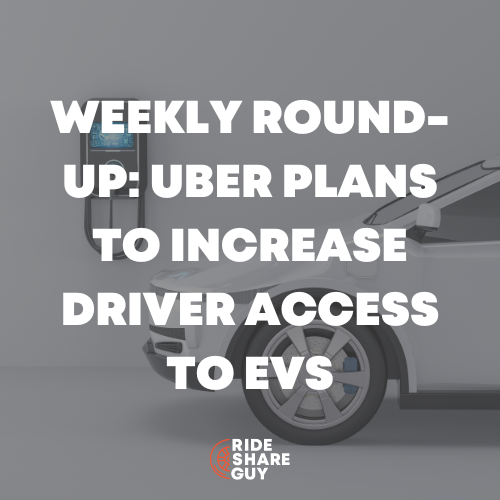Every other week, I published Rideshare Drivers React on Linked In – it’s a roundup of trending news and what you, the drivers, have to say about it. You can take a look at the series’ previous newsletters here, and I have included this week’s edition below. Let me know what you think in the comments!
[Editor’s note: Quotes are lightly edited for clarity]

Report Claims Seattle Drivers Earn $23.25 Per Hour After Expenses
A recent academic study, Platform Driving in Seattle, claims median earnings for drivers in Seattle is $23 an hour (after expenses). The only problem is that some of their assumptions are quite generous!
The major takeaways from the study included:
- Seattle drivers earn $23/hour after expenses, but that doesn’t include all the waiting time (P1).
- 92% of Uber and Lyft drivers earn more than Seattle’s minimum wage
- Earnings data did not include streaks or bonuses – meaning some drivers earned more than was calculated
Understandably, some drivers were skeptical about the study findings and disputed whether or not earnings like these were even attainable in their own cities.
Here’s what readers are saying:
Many drivers had concerns about how the study counted commute and wait times, and believed those figures should have played a bigger role:
“I talked to about 10 drivers from the Seattle area and none are seeing any numbers like that for Uber X, sorry but the math doesn’t add up… I usually count my hours working according to the time my app starts to run ‘til I sign out…My time with the app on is valuable and reflects my costs. Uber nor Lyft claims to be an employer so I don’t expect them to pay for anything except rides, but I have to account for costs for driving.”
Another reader, Jared in Seattle, provided much needed perspective given the study took place in his city:
“I’ve been driving in Seattle typically about 40 hours a week (up until Feb). All of my driving is for Uber. I have read the report and I generally agree with their findings in my own experience. This report is much more accurate than the report the City commissioned because they obtained the ACTUAL trip records from both Uber and Lyft for one whole week… Again, they had the actual revenue earned, excluding any surges or bonuses, so their top line was 100% precise.
I value my freedom of schedule as a driver so don’t let Seattle City Council change us into employees where the companies can dictate our hours and zones. I for one would not like the midnight shift, as I wanna keep my Diamond rating.”
Chime in on the discussion here.
Is the Federal Pandemic Unemployment Compensation (FPUC) for Gig Workers Still in Limbo?
The deadline to pass a new stimulus funding bill, which would help to continue funding the Federal Pandemic Unemployment Compensation (FPUC) program for unemployed workers, came and went. So what’s in its place, and what can rideshare drivers do until then?
Drivers are right to be concerned about what’s going on, both in Congress and out in their communities. As COVID shows no signs of abating, yet unemployment insurance, designed to pay people to stay home and reduce the transmission of the virus, dries up, many drivers are making the hard choice to either go back to driving or stay at home and piece other work together.
Here’s what readers are saying:
Viewer Andrew spoke for most drivers when he expressed cautious optimism for Congress to pass something, anything, to help drivers – but also encouraged drivers to plan for the long haul:
“I feel as long as they can’t negotiate anything , it’ll be in permanent limbo! I hope many of us saved the 600 a week we were receiving. I saved as much as I could, because 2020 still looks like it’ll be a rough year for its second half. They felt that by the summer of 2020 we would have flattened the COVID curve. We haven’t. We shall see if they pass anything. I hope that they can find a solution.”
Another viewer noted that delivery demand had increased tremendously over the last few months, but many drivers are still desperate:
“I think that this week they will work out their differences and put out a bill that will help the people!… Rideshare driving is still down. It’s still not totally safe to drive. Some folks will drive in a desperate attempt to get by but that’s not a good option for everybody, because that will make more folks sick. Delivery is through the roof, but that is so time consuming. Whew!!!”
Chime in on the discussion here.
This Uber Driver Was Assaulted By A Passenger! How Did Uber Handle It?
While the majority of drivers will provide uneventful, A to B rides, there are times when things don’t go as planned for drivers. In these circumstances, when drivers are assaulted by passengers, what recourse is there for the driver?
We featured a story from an Uber driver who was recently assaulted so badly by a passenger that he had to go to the hospital. While Uber has maintained contact with this driver, many Uber and Lyft drivers had plenty to say about this incident and others like it.
Here’s what readers are saying:
Many drivers shared their own stories of assault or angry passengers, with little follow up or support from Uber or Lyft. One viewer shared an idea that has been widely supported among drivers for years now: the same type of vetting process drivers have to go through, passengers should too.
“I feel bad for the driver, Uber needs to take reports more seriously. This just shows they are not willing to invest on the driver as much as they claim to. Until then, no one can believe rideshare companies actually care about their drivers.
Perhaps they should start to hold their clients more accountable for their actions by vetting them more… Just do what other companies do when using service and [require] multiple forms of I.D. and contact info. It’s a start and not as demanding as other options.”
Chime in on the discussion here.
What do you think of the discussions here? Let me know in the comments below!
-Harry @ RSG




